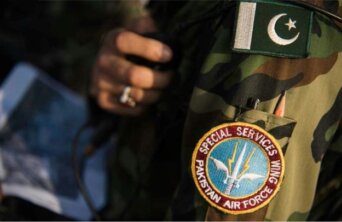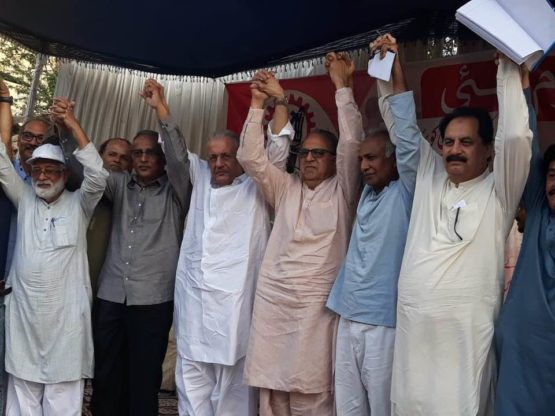- About
- Topics
- Picks
- Audio
- Story
- In-Depth
- Opinion
- News
- Donate
- Signup for our newsletterOur Editors' Best Picks.Send
Read, Debate: Engage.
| topic: | Democracy |
|---|---|
| located: | Pakistan |
| editor: | Shadi Khan Saif |
Millions of Pakistanis exercised their fundamental right to vote on Thursday, 8 February, to choose who among them will run the country for the next five years.
The long-awaited and delayed polls come when the country is arguably going through the toughest political, security, and economic situation it has seen in decades.
Fair and transparent polls are the fundamental pillars of an inclusive democracy that Pakistan needs at this moment to build a consensus on measures to come out of these crises.
An unprecedented number of voters came out to exercise their vital right to have a say in the country's future. Results so far indicate that Independent candidates are well ahead with 100 seats, and most of them are supported by popular jailed ex-Prime Minister Imran Khan.
The voter turnout was despite a government-imposed shutdown of internet and mobile services to "maintain the law and order" during polling, making it impossible for candidates as well as voters to communicate.
Amnesty International was among a number of rights groups demanding the Pakistani government not infringe on people’s right to communicate.
“The decision to suspend telecommunications and mobile internet services on an election day is a blunt attack on the rights to freedom of expression and peaceful assembly." Said Amnesty’s Livia Saccardi.
"It is reckless to impede access to information as people head out to polling stations on the heels of devastating bomb blasts and what has been an intense crackdown on the opposition in the lead-up to the elections in the country,” she continued.
The country’s perceived independent electoral body, the Election Commission of Pakistan, has evidently struggled to deliver timely results on several occasions, noted the local media.
Delays undermine the credibility of this crucial body, which should ensure the process remains immune to influences that compromise the integrity of the people's vote.
After decades of military interventions, Pakistan’s journey to a functioning and progressive democracy needs robust and independent institutions to safeguard people’s opinions and transform them into meaningful and timely actions.
On several occasions in Pakistan, democratic governments have been dissolved before completing their terms.
As the election results are announced, it will be a crucial test for the political leaders to show respect for each other's mandates and accept their respective roles as the government and opposition based on the vote count. Rather than resorting to unethical and illegal means to achieve their desired results, they should uphold the values of decency and law.
This election is part of an enormous ongoing and evolving process of democracy in Pakistan, and people are at the heart of it.
Image by Sameer Akhtari.

